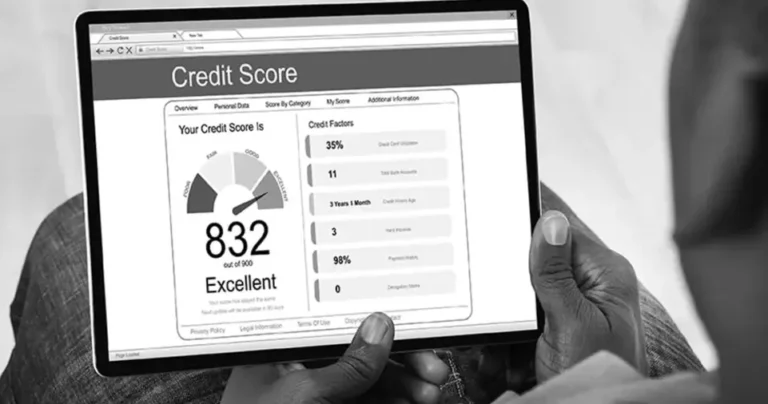Your business credit score is one of the most crucial factors that determine your financial credibility in the corporate world.
Whether you’re applying for a loan, seeking investors, or building relationships with vendors and suppliers, a strong business credit score can open doors to better opportunities.
A higher credit score can help you secure better interest rates, access higher credit limits, and enhance your company’s financial reputation.
Many business owners overlook the importance of maintaining a strong credit profile until they face financial obstacles.
Without a good business credit score, companies often struggle to get loans or favorable payment terms, limiting their growth potential.
However, improving your business credit score is not an overnight process. It requires consistent effort, financial discipline, and strategic planning.
In this guide, we’ll explore the best strategies to improve your business credit score.
From checking your credit report regularly to maintaining a positive financial profile, we will cover all the essential steps to help you build and maintain strong business credit.
Check Your Business Credit Report Regularly
Why Checking Your Credit Report is Important
One of the first steps to improving your business credit score is to understand where you currently stand.
Many business owners are unaware of their business credit score and the factors influencing it.
Regularly checking your business credit report helps you stay informed about your credit standing, identify errors, and take action to correct any discrepancies.
How to Obtain Your Business Credit Report
There are several credit bureaus that track business credit scores, including:
- Dun & Bradstreet (D&B) – Uses the PAYDEX score system.
- Experian Business – Provides a business credit score based on financial history.
- Equifax Business – Tracks credit history and assigns risk scores.
You can request a free or paid credit report from these bureaus to review your score and financial activity.
Once you have the report, examine it carefully for errors or outdated information that might negatively impact your credit score.
How to Dispute Errors
If you find inaccuracies, such as incorrect balances, unauthorized accounts, or payment errors, contact the respective credit bureau and submit a dispute.
Provide evidence, such as bank statements or payment receipts, to support your claim.
Correcting errors can lead to an immediate improvement in your business credit score.
Establish a Business Credit Profile

Why Your Business Needs a Credit Profile
A business credit profile is separate from your personal credit and is used to assess your company’s creditworthiness.
Establishing a credit profile is essential for securing loans, vendor accounts, and financial partnerships without putting your personal credit at risk.
Steps to Set Up a Business Credit Profile
- Register Your Business Legally – Ensure your business is registered as an LLC, Corporation, or other legal entity. This separates personal and business finances.
- Obtain an EIN (Employer Identification Number) – This acts like a Social Security Number for your business and is required for tax purposes and business credit accounts.
- Open a Business Bank Account – A dedicated business bank account is necessary for tracking transactions and financial activities separately from personal finances.
- List Your Business with Credit Bureaus – Register with agencies like Dun & Bradstreet to establish a business credit file.
A properly set up credit profile makes it easier for lenders and suppliers to evaluate your creditworthiness, ultimately improving your chances of securing credit.
ALSO READ: How to Start a Blockchain-Based Business
Pay Bills on Time or Early
Why Timely Payments Matter
Your payment history is the most significant factor influencing your business credit score.
Late payments can damage your score and reduce your chances of securing future credit.
Making payments on time or even earlier than due dates shows lenders and credit bureaus that you are financially responsible.
Best Practices for Timely Payments
- Set Up Automatic Payments – Avoid missing due dates by automating payments for loans, credit cards, and vendor accounts.
- Use Payment Reminders – If automation is not an option, use calendar alerts or accounting software to remind you of upcoming payments.
- Prioritize High-Interest Debts – If you have multiple financial obligations, focus on clearing debts with high interest rates first to prevent excessive financial strain.
Consistently making timely payments strengthens your credit score and builds a positive relationship with lenders and vendors.
Work with Vendors That Report to Credit Bureaus

How Vendor Relationships Impact Credit Score
Establishing trade credit with vendors who report to business credit bureaus can help build your credit history.
Not all vendors report payments, so working with those who do can significantly impact your score.
How to Choose the Right Vendors
- Look for suppliers and service providers that extend net-30, net-60, or net-90 payment terms.
- Verify if they report to credit bureaus before doing business.
- Build a strong relationship by making timely payments.
Some well-known vendors that report to credit bureaus include Uline, Grainger, and Quill.
Establishing trade credit with these companies helps build a positive credit profile.
Reduce Credit Utilization
What is Credit Utilization?
Credit utilization refers to the percentage of your available credit that you’re using.
High credit utilization can indicate financial stress and negatively impact your credit score.
How to Lower Credit Utilization
- Keep utilization below 30% – If you have a $10,000 credit limit, try to keep the balance below $3,000.
- Request a Credit Limit Increase – If your spending needs remain high, ask for a higher credit limit to maintain a lower utilization percentage.
- Pay Off Balances Early – Instead of making minimum payments, pay off the balance in full when possible.
Lowering credit utilization shows that your business is not over-reliant on credit and can manage finances responsibly.
Maintain a Strong Business Financial Profile
How Financial Health Affects Credit
Lenders and credit bureaus consider the overall financial health of your business when assessing creditworthiness.
A company with stable revenue and controlled debt is more likely to maintain a high credit score.
Tips to Strengthen Your Financial Profile
- Increase Revenue Streams – Diversifying income sources makes your business more financially stable.
- Reduce Unnecessary Expenses – Lowering operational costs increases profit margins.
- Keep Financial Records Organized – Accurate accounting helps track financial progress and prepares you for credit evaluations.
A strong financial foundation ensures that your business can handle credit responsibly, which contributes to a better credit score.
ALSO READ: How to Diversify Your Investment Portfolio for Long-Term Gains
Conclusion
Improving your business credit score requires time, effort, and consistent financial discipline.
By regularly checking your credit report, paying bills on time, maintaining low credit utilization, and working with vendors that report payments, you can steadily build a strong credit profile.
A high business credit score not only gives you access to better financial opportunities but also strengthens your business’s reputation in the industry.
Start implementing these strategies today to build a solid financial future for your business!











